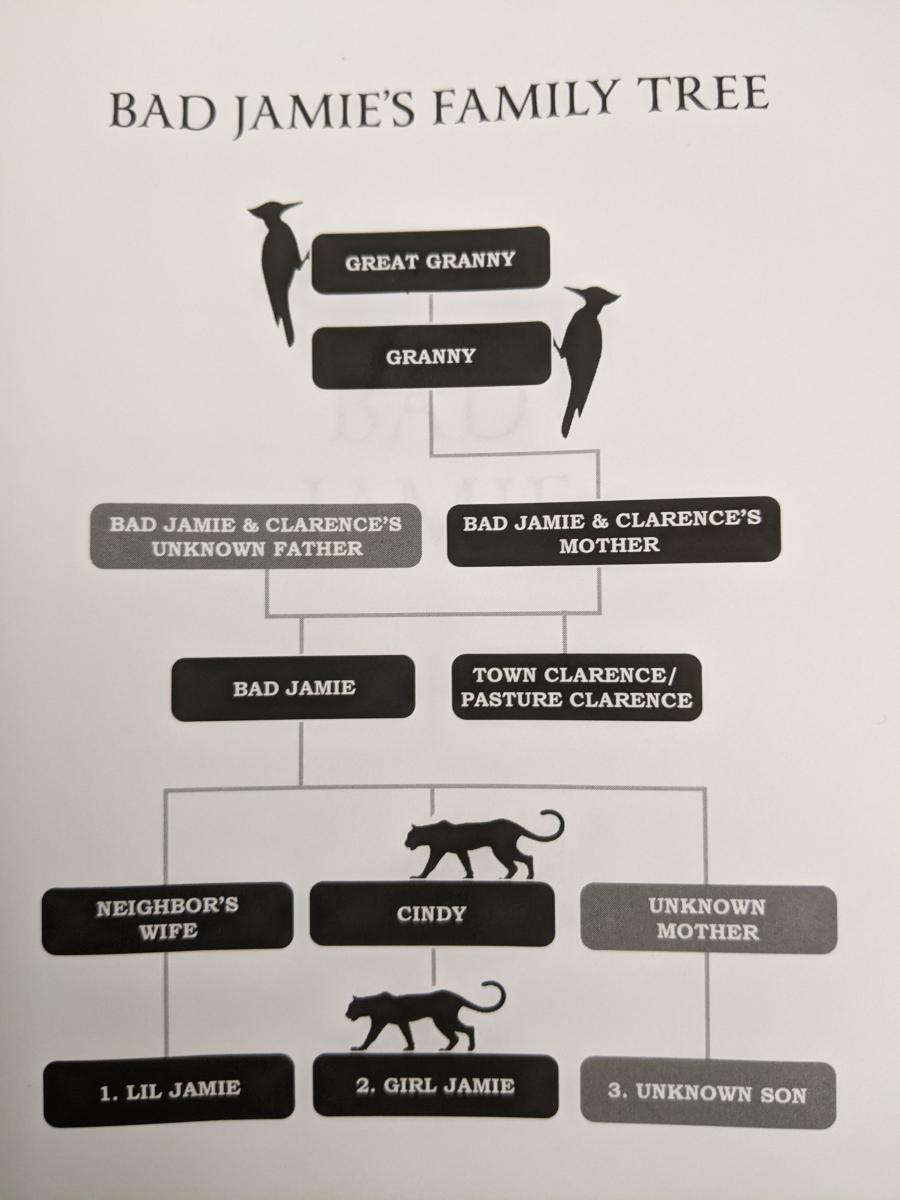When we think of speculative literature, we think of space-age cities rising into the deep blue sky. Futurity is linked to the urban: skyscrapers, flying cars, superpowers. Imaginations run rampant in the city without leaving room for the rural. I have always been interested in the where the speculative meets the real, especially in regional literature, and especially outside of the city. How does magic make its way into wild landscapes, into the beings that inhabit it? How does speculative literature engage with the country?
As it turns out, many stories exist within the rural speculative genre. The rural speculative challenges the traditional agrarian landscape using fantastic, weird, or science fiction elements. Jessica Fordham Kidd’s poetry collection Bad Jamie is one such text.
A tightly-knit series of poems that details a particular southern family, Bad Jamie incorporates fantastic, fabulist elements into a rich, complex, rural landscape, bridging the gap between magical and real. The book begins with an image of Bad Jamie’s family tree, solidifying the reality of the narrative, and yet crossing the boundary between the human and non-human world by including representations of animals within the chart.

This hint is exploited in the first poem: by the end of “Under Granny’s Wings” (published online at Ninth Letter), fabulist elements encroach. The poem begins with Bad Jamie waking half-drunk in the rural landscape. He “slips out of the mountain’s arms” and “crawls through the rotted wall / of his grandmother’s old house,” more like a wild creature than a human.
Here, Kidd dissolves the boundaries between worlds: Bad Jamie is neither human nor animal, neither drunk nor sober, sleeping nor awake. The natural world is not wild nor tame, as grandmother’s house is neither tame nor wild. Is Granny herself even alive? What does it mean to be present? “Granny’s there too,” Kidd writes, “In her feathered form / she drops white stars from the rafters…” The idea of a matriarchal figure reigning over the family takes the image of a bird nested in an abandoned house, destroying what’s left with its excrement and further destabilizing the reality we think we understand so well. The rural landscape becomes a catalyst for the magical real, and Granny often seems to be at the heart of it.
Granny appears throughout Bad Jamie, and always with an element of dangerous magic. In “Every Place Electric with Life and Longing,” even Granny’s house is given its own voice, literally using the rural landscape to pierce the veil between the real and imagined world. In this poem, Bad Jamie hears the house “sighing in the night,” as it is exhausted from holding “your birthing pains, / plates and cups, mewing hidden kittens” and its “bones are starting to sag.” The quietness of the rural landscape gives it mystery, a chance for each element that makes up the world to meditate and—if a person knows how to listen—to speak for itself.
Southern gothic meets magical real in the rural landscape, far from the bustle of urban life but fully within the realm of the human. Kidd’s poems, like other works of rural speculative literature, challenge tradition, playfully reimagining the distinction between the real world and fantasy to celebrate the richness and complexity found within. Kidd’s collection fits into a lineage of poetry by Ansel Elkins, Kelly Whiddon, and Anna Journey, to name a few examples of other rural speculative works in verse. In its reimagining of how magic, fabulist, and fantasy elements fit into our human world, the rural speculative holds space for possibility.
Stacey Balkun is the author of Eppur Si Muove, Jackalope-Girl Learns to Speak & Lost City Museum. Winner of the 2017 Women's National Book Association Poetry Prize, her work has appeared in Best New Poets, Crab Orchard Review, The Rumpus, and other anthologies & journals. Chapbook Series Editor for Sundress Publications, Stacey holds an MFA from Fresno State and teaches poetry online at The Poetry Barn & The Loft. Find her online at http://www.staceybalkun.com/

